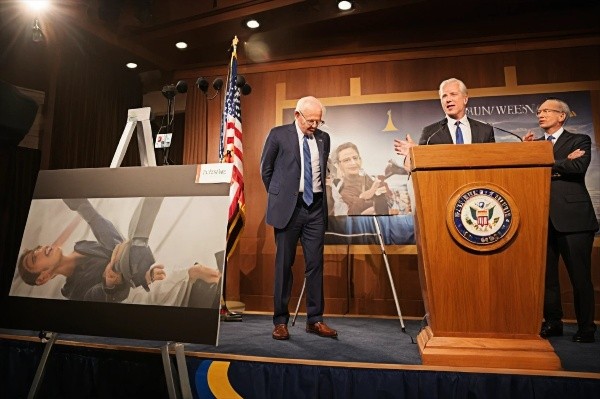Iran’s Plan to Strike Back Against the U.S.
Iran’s Military Preparations Following U.S. Attacks
Loading...

The push led by Senator Bernie Sanders falls short, but advocates say it shows progress for the Palestinian rights movement.
Introduction: A Missed Opportunity for Change
In a significant decision, the United States Senate overwhelmingly voted against a proposal to halt a major weapons sale to Israel, despite ongoing conflict in Gaza. Although the effort spearheaded by Senator Bernie Sanders did not succeed, supporters claim it marks a shift in the conversation regarding the United States' unwavering military support for its key ally, Israel.
The Vote and Its Implications
The proposed resolution aimed to stop the sale of tank rounds to Israel but was defeated in a decisive 79 to 18 vote on Wednesday. Despite backing from prominent progressives and some mainstream Democrats, the resolution failed to garner enough support. Two additional resolutions to block other weapon sales also did not advance, each receiving fewer than 20 votes.
Introduced by Senator Sanders in September, these Joint Resolutions of Disapproval (JRDs) were unprecedented, marking the first time such a measure was introduced against an arms sale to Israel. Sanders' initiative challenged a $20 billion weapons deal approved under President Joe Biden's administration, reflecting a growing call to re-evaluate the nature of US aid to Israel.
Emerging Support for Conditional Aid
Despite the apparent lack of support, the vote is seen by advocates as a turning point in the long-standing bipartisan consensus on unconditional military aid to Israel. Beth Miller of Jewish Voice for Peace described the vote as an "inflexion point" in efforts to condition US military assistance to Israel, emphasizing the importance of this symbolic step even as conflict persists.
Backing for the resolution came not only from Sanders but also from Democratic Senators Peter Welch, Jeff Merkley, Chris Van Hollen, Tim Kaine, and Brian Schatz. Senator Kaine, a former vice-presidential nominee, underscored the need for de-escalation and sustainable peace, arguing that continued offensive weapon transfers exacerbate regional instability.
Continued US Support for Israel
The US has been a crucial ally to Israel, providing substantial military aid critical for its operations in Gaza and Lebanon. A study by Brown University highlighted that the Biden administration allocated $17.9 billion in security assistance to Israel over the past year. This support has continued despite international warnings about potential human rights abuses in Gaza.
While Republican senators uniformly opposed the measures, reports indicate that the Biden administration actively lobbied Democratic senators to vote against the resolutions. This effort was confirmed by Shelley Greenspan, the White House Liaison to the American Jewish community, who expressed approval of the administration's stance.
Criticism and Support from Advocacy Groups
The Council on American-Islamic Relations (CAIR) condemned the White House's lobbying efforts, criticizing what they called a "dishonest campaign" to pressure senators. They, along with several other advocacy groups, supported the resolution, arguing that US foreign policy in the Middle East has been ineffective.
Senator Sanders, in a passionate speech before the vote, emphasized the resolutions' alignment with US laws prohibiting military aid to nations that obstruct humanitarian efforts or commit human rights violations. He argued for consistency in US foreign policy concerning human rights issues worldwide.
Conclusion: A Divided Senate and Future Implications
Despite the failure to pass these resolutions, the effort highlighted a growing debate within the Senate and the broader political sphere about the US's role in international conflicts and the conditions under which it provides military aid. While the resolutions did not pass, they represent an increasing willingness among some US lawmakers to question and potentially reshape longstanding foreign policy practices.
Editor
Iran’s Military Preparations Following U.S. Attacks
Troops remain in five strategic locations, raising fears of renewed tensions and long-term occupation.
Opposition forces have taken control of the capital after a significant offensive. Here is how it unravelled.
